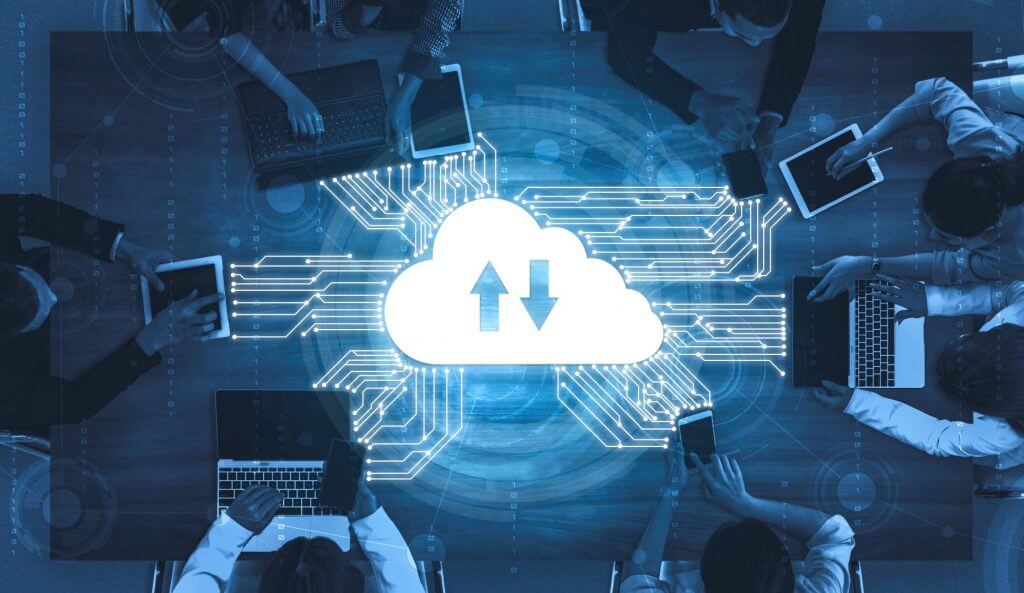Why every business needs a Cloud backup solution
What is a Cloud backup solution?
Cloud adoption in 2021 is now commonplace for the majority of organisations. However, what many businesses fail to account for when making the move to the Cloud is the need for a Cloud backup solution.
But isn’t everything already backed up because it’s on the Cloud?
This is a common misconception across many people. After all, no matter where you are or what device you are using, you can access cloud-based programs such as Gmail, Microsoft Outlook, etc, right? But what happens if your emails are permanently deleted from your Gmail account? They’re gone forever, right?
This is where a Cloud backup solution can help.
Organisations need a Cloud backup solution
A Cloud backup solution gives your organisation the ability to secure a copy of your data to an external location, so that in the event your data is compromised you can restore the information, ensure business continuity, and protect your organisation from IT issues.
Common data loss scenarios for a business from their Cloud platform include:
● Accidental: Deletion, unintentional saves that overwrite prior history, record merges, etc
● Malicious: Virus, ransomware, intentional sabotage by employees, data breach etc
● Sync: Failed device sync, third party app corrupted sync, etc
It’s important to remember that a Cloud backup solution does not eliminate the need for a local backup on an external hard drive of some sort.
Cloud data centers will process 94% of workloads in 2021.
Source: Cisco
Types of Cloud backups
There are three primary types of Cloud backups your organisation could opt for:
1) Third party provider
You can choose a third party provider to store your data backup in a secure location for you. These providers, such as CloudAlly or AvePoint, can ensure daily, automated backups with unlimited retention, and can integrate with a number of Cloud platforms including Amazon Web Services (AWS), Microsoft, Google and more.
2) Office-based hard drives
You can keep hard drives in your office with data backups. These require backing up manually each day, and should be kept in a fire-proof safe within your office. However, this can result in a lot of lost physical space within the office, is a time-consuming task as you have to ensure all data has been synced properly, and if the task is forgotten it can still result in loss of data.
3) Remote server
You can run a remote server that completes the same function that a third party provider offers, but your organisation would be responsible for the hardware maintenance, software maintenance, the physical location of the remote server, etc. This can be an expensive and technically challenging option.
Kloud IT recommends that you opt for solution 1 – an external third party provider. This is the most cost effective and practical choice for many organisations.
What to look for in a Cloud backup solution provider
When looking for a Cloud backup provider, there are a few things to consider as you assess your options.
Technical
● How much storage space will you need?
Generally the amount of storage space you take out will correlate to the cost of your service plan. It’s best when calculating how much storage space you need to also build in a margin of extra storage in case of higher short-term growth than expected.
● Is it scalable?
Relating to the point above, if you do begin to experience growth can your third party service provider scale with you to provide higher levels of storage and support as you need?
● Does the service need to support versioning?
Versioning is when multiple versions of a document are kept so you can revisit past iterations. This can be beneficial, for example, if you have documents that require frequent amendment, so you do not have to keep multiple iterations that take up valuable storage space in your Cloud.
● Can you backup both operating systems and devices?
Decide if you need your cloud backup solution to accommodate both operating system files and applications, while other services are more tailored to backing up smartphones and tablets. As an organisation, if you have employees using company files and data on their personal devices, you will likely need a backup solution that can accommodate both.
● What is the ‘uptime’ for your plan?
The uptime of a Cloud service is the amount of time that the service is available to the end user. Often to guarantee 99.9% uptime, which is the recommended service level for enterprises, you have to have an upgrade plan from the standard service contract.
● What redundancies and disaster recovery policies do the third party service have in place?
Does the service offer backups of your backup in the event of a data breach or cyberattack? You should always ask what redundancies are in place in the event of a breach or disaster, and what the protocol is for recovery.
● What is the frequency with which backups will happen?
The frequency with which your Cloud service will backup your data can vary greatly depending on an organisation’s requirements. Some enterprises need real-time backups as documents change, while others are fine to be more periodic. The minimum recommended frequency for backups is daily.
Management
● How is the Cloud backup managed?
Things to consider within the management of your Cloud backup service are what service limits are applied to your plan, how do you monitor access by your employees/the users of the service, and how do they access the service itself.
● Will you have a dedicated account manager from the third party service to provide support?
Always take note of who your point of contact will be at the service provider’s end in the event of questions, support, issues etc. It’s best to always have a single go-to person, who is then supported by a larger team on their side.
● What terms are included when taking out the service?
Ensure you read the fine print of any service contract offered to identify cancellation clauses, contract terms, whether vendor lock-in is required, etc.
Security and compliance
● What type of encryption options are offered?
At minimum the Cloud backup service provider should offer minimum 256-bit Advanced Encryption Standard (AES) at rest and in transit (ie both when in storage and when the files are being transferred from the user to the external backup and vice versa) and Secure Socket Layer (SSL) encryption. Preferably the provider will offer User Controlled Encryption (UCE) encryption, which encrypts data at the user end while it is uploaded to the cloud, and the keys to the encrypted data are held by the user rather than the company.
● What standard of compliance does the third party service adhere to?
The level of compliance required by your Cloud backup service provider will be dependent upon the industry your organisation is in, and what data is to be stored on the platform. In Australia compliance requirements are dictated by the Australian Securities and Investments Commission (ASIC) and the Australian Prudential Regulation Authority (APRA).
Customer Personal Identifiable Information (PII) data has the highest cost at USD$150.00 per record.
Source: IBM
Protect your Cloud data today
If your organisation uses the Cloud and you don’t yet have a Cloud backup service, finding one to ensure the protection of your data and information should be your highest priority.
Here at Kloud IT we can help your organisation determine which Cloud backup provider is right for your business, along with what level service plan you require. This will ensure you are paying only for what you need.
Contact us to discuss how we can help protect your business’ information today.



